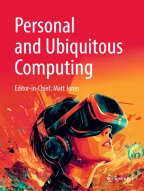Abstract
Massive scientific and technical literature has recorded the developments of science and technology and contains plentiful knowledge. Researchers have to read scientific literature such as papers, patents, and reports to know the latest developments in time. However, it is difficult for researchers to read all the newly published and relevant literature. So there is an urgent need for scientific literature summarization systems to provide brief and important dynamic information that researchers are interested in. This paper proposes an approach to generate automatic summarization based on 5W1H event structure. Sentences in the literature are classified and selected for different elements of events by relevance, and then the importance of each candidate sentence is calculated. Top-k relevant and important sentences are selected to formulate event-based summarization. Comparing with existing summarization results or abstracts given by authors, experiment results of our approach contain more detailed information with the the 5W1H event structure, which is more convenient for researchers to search and browse the brief description of scientific and technical information distributed in massive scientific literature.
Similar content being viewed by others
References
Ahn D (2006) The stages of event extraction. In: The workshop on annotating & reasoning about time & events, pp 1–8
Blanco R, Lioma C (2012) Graph-based term weighting for information retrieval. In Retr 15(1):54–92
Boguraev B, Ando R K (2005) Timeml-compliant text analysis for temporal reasoning. In: International joint conference on artificial intelligence, pp 997–1003
Che W, Li Z, Liu T (2012) Ltp: A chinese language technology platform. J Chin Inf Process 2(6):13–16
Hahn U, Mani I (2000) The challenges of automatic summarization. Computer 33(11):29–36
Hai L C, Ng H T (2002) A maximum entropy approach to information extraction from semi-structured and free text. In: 18th national conference on Artificial intelligence, pp 786–791
Hogenboom F, Frasincar F, Kaymak U, Jong F D, Caron E (2016) A survey of event extraction methods from text for decision support systems. Decis Support Syst 85(C):12–22
Kim J T, Dan I M (1993) Palka:a system for lexical knowledge acquisition. In: DBLP, pp 124–131
Kim J T, Moldovan D I (1995) Acquisition of linguistic patterns for knowledge-based information extraction. IEEE Trans Knowl Data Eng 7(5):713–724
Kuksin S B, Shirikyan A (2010) Event extraction for systems biology by text mining the iterature. Trends Biotechnol 28(7):381
Lee C S, Chen Y J, Jian Z W (2003) Ontology-based fuzzy event extraction agent for chinese e-news summarization. Expert Syst Appl 25(3):431–447
Liang H, Chen Q X, Ping-Bo W U (2006) Information extraction system based on event frame. J Chin Inf Process 20(2):40–46
Lin C Y (2004) Looking for a few good metrics : Rouge and its evaluation. In: Proc. of the Ntcir workshops, Tokyo, Japan
Mihalcea R, Tarau P (2004) Textrank: Bringing order into texts. Unt Scholarly Works, pp 404–411
Minsky M (1974) A framework for representing knowledge, Massachusetts Institute of Technology
Piskorski J, Tanev H, Wennerberg P O (2007) Extracting violent events from on-line news for ontology population. In: International conference on business information systems, pp 287–300
Pustejovsky J, Castano J M, Ingria R, Sauri R, Gaizauskas R J, Setzer A, Katz G, Radev D R (2003) Timeml: Robust specification of event and temporal expressions in text. Direct Quest Answer 3:28–34
Sarawagi S (2008) Information extraction. Springer, Berlin
Teufel S, Moens M (2002) Articles summarizing scientific articles: Experiments with relevance and rhetorical status. Comput Linguist 28(4). http://www.aclweb.org/anthology/J02-4002
Xu F, Uszkoreit H, Li H (2006) Automatic event and relation detection with seeds of varying complexity. Proceedings of Aaai workshop event extraction & synthesis
Yankova M, Boytcheva S (2003) Focusing on scenario recognition in information extraction. In: 10th conference on European chapter of the association for computational linguistics, pp 41–48
Zhang J, Li K, Yao C (2018) Event-based summarization for scientific literature in chinese. Proc Comput Sci 129:88–92. https://doi.org/10.1016/j.procs.2018.03.052. https://www.sciencedirect.com/science/article/pii/S1877050918302758, 2017 International Conference on Identification, Information and Knowledge in the Internet of Things
Zhang J, Sun Y, Gao Y, Fang X (2019) Event-centric machine strategic reading approach for scientific literature. In: Rongfang Bie Yunchuan Sun JY (ed) 2018 international conference on identification, information and knowledge in the internet of things, Procedia computer science, vol 147, pp 44–48. Elsevier. https://doi.org/10.1016/j.procs.2019.01.182
Zhang J, Sun Y, Jara AJ (2015) Towards semantically linked multilingual corpus. Int J Inf Manag 35(3):387–395. https://doi.org/10.1016/j.ijinfomgt.2015.01.004. http://www.sciencedirect.com/science/article/pii/S0268401215000055
Zhang J, Sun Y, Yao C (2017) Semantically linking events for massive scientific literature research. The Electronic Library 35(4):724–744. https://doi.org/10.1108/EL-09-2016-0198
Zhang J, Yao C, Sun Y, Fang Z (2016) Building text-based temporally linked event network for scientific big data analytics. Pers Ubiquit Comput 20 (5):743–755. https://doi.org/10.1007/s00779-016-0940-x
Funding
This research work was partially supported by National Natural Science of China (Grant No. 71503240, 61371185 and 61202436).
Author information
Authors and Affiliations
Corresponding author
Additional information
Publisher’s note
Springer Nature remains neutral with regard to jurisdictional claims in published maps and institutional affiliations.
Bibliographic note
Portions of this work were previously presented in our previous work [22]. The current article extends this work in several ways, most notably: (1) We add the detailed method for event-based summarization for scientific literature; (2) We add evaluation experiments and compare with existing summarization systems.
Rights and permissions
About this article
Cite this article
Zhang, J., Li, K., Yao, C. et al. Event-based summarization method for scientific literature. Pers Ubiquit Comput 25, 959–968 (2021). https://doi.org/10.1007/s00779-019-01301-5
Received:
Accepted:
Published:
Issue Date:
DOI: https://doi.org/10.1007/s00779-019-01301-5
